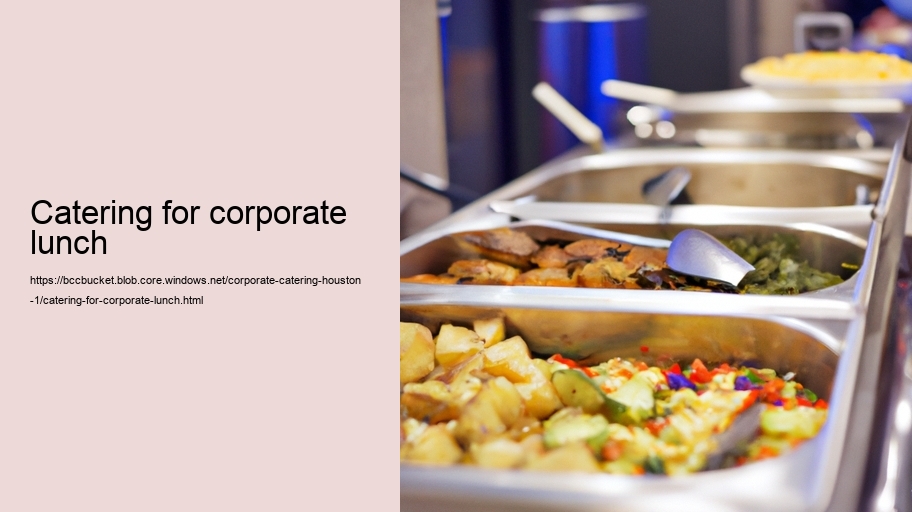Catering for a Corporate Lunch: The Key to Enhancing Workplace Morale and Productivity
In the bustling world of business, where every minute counts and productivity is paramount, the corporate lunch has emerged as much more than a mere midday meal. It's an opportunity for companies to fuel their employees not only with sustenance but also with a sense of appreciation and camaraderie. Enter the realm of corporate catering—a service that transforms this daily pause into an event that can boost morale, foster team spirit, and ultimately contribute to the success of any organization.
At its core, catering for a corporate lunch involves providing food and beverages for employees within an office or at company events. However, this simple definition belies the nuanced role that such a service plays in the modern workplace. A well-crafted menu paired with impeccable service can turn a routine gathering into an experience that resonates with staff members long after they've returned to their desks.
The first bite into a thoughtfully prepared dish can act as a catalyst for conversation among colleagues who might otherwise be too engrossed in their work to interact. Shared meals have historically been occasions where relationships are nurtured and ideas exchanged; this tradition continues within the walls of corporations around the world. By facilitating these interactions, catering services inadvertently serve as architects of company culture, constructing platforms upon which professional bonds are formed and strengthened.
Quality catering goes beyond merely appeasing hunger—it satisfies diverse palates and dietary needs while reflecting the values of the brand it represents. Companies today recognize that offering organic options or incorporating international cuisine reflects their commitment to employee well-being and global awareness. Such considerations communicate care on behalf of employers, making staff feel valued beyond their output—an investment in human capital that is repaid through loyalty and enhanced performance.
Moreover, outsourcing lunch preparations to professional caterers allows businesses to focus on what they do best without sacrificing time or resources managing food logistics. This efficiency gains importance when considering high-stakes meetings involving clients or investors. In these scenarios, corporate lunches become extensions of branding efforts; each course served must embody excellence just like the products or services provided by the company.
However sophisticated or simple the fare might be at these gatherings—whether it's gourmet sandwiches lined up neatly on platters or elegant hot entrees presented buffet-style—the underlying message remains consistent: "Your contribution matters." When management takes steps to provide quality meals during work hours, they're implicitly acknowledging effort while simultaneously encouraging continued dedication.
Furthermore, regular inclusion of catered lunches acts as an incentive mechanism within workplaces. Specialized menus celebrating milestones or achievements reinforce positive behaviors and outcomes—a tactic increasingly embraced by forward-thinking leaders who understand motivation extends beyond compensation packages.
Of course, no discussion about corporate catering would be complete without touching upon logistical prowess required for flawless execution. Timing is critical; dishes must arrive fresh at precisely designated intervals so as not interrupt workflows significantly. Professional caterers adept at coordinating such specifics enable seamless integration between nourishment breaks and business operations.
In conclusion, catering for a corporate lunch transcends its primary objective of feeding attendees—it's an instrumental tool in building organizational strength from within. Through meticulous menu planning and delivery precision coupled with understanding workforce dynamics, caterers contribute substantially towards nurturing environments conducive to innovation and growth. As companies continue navigating complexities inherent in today's competitive landscapes, investing in quality culinary experiences during work hours emerges not only as good hospitality but also smart strategy — one bite at a time.
